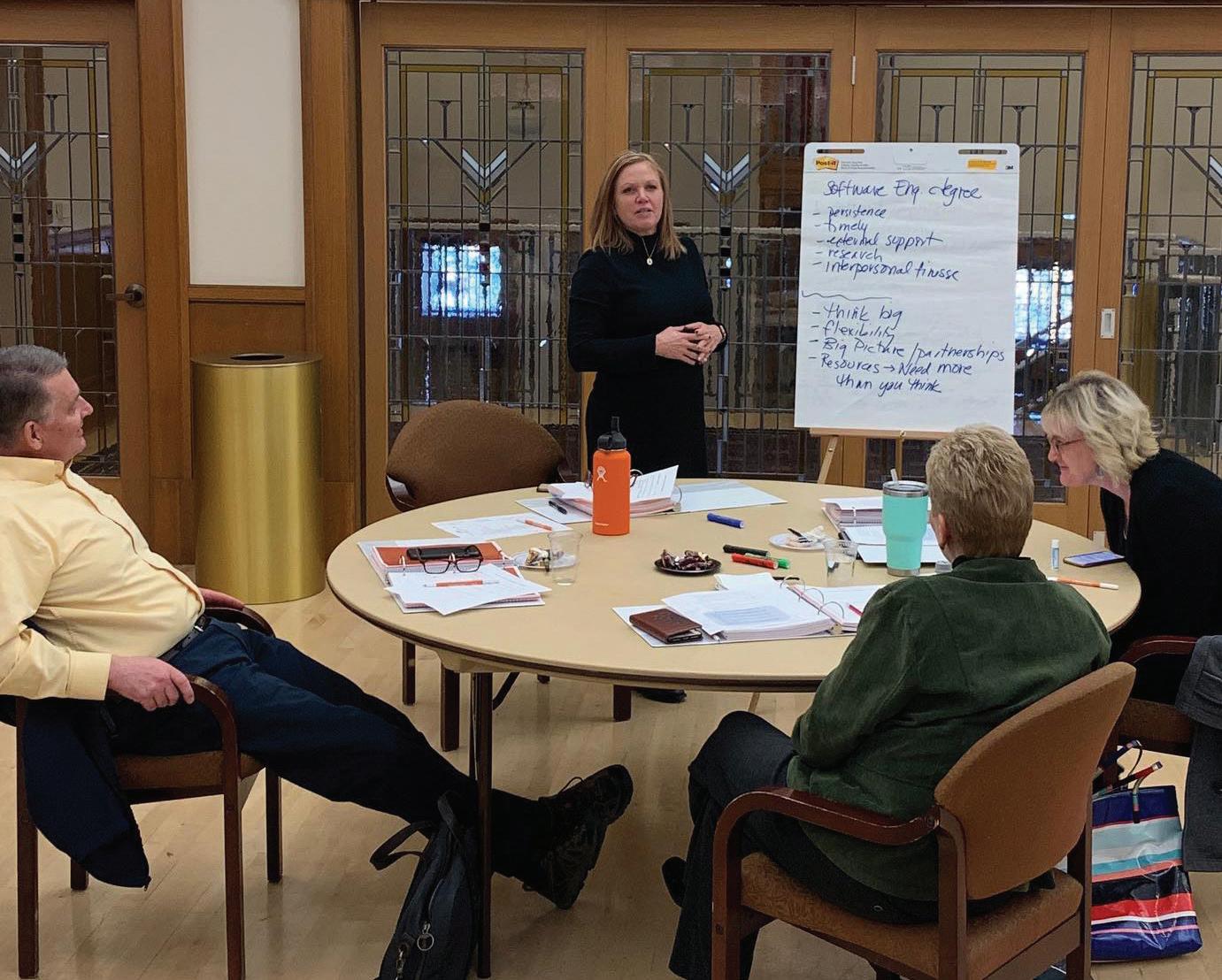
2 minute read
Strategic Plan
BADGERnews
Strategic Plan Provides Guidance to Help Snow College Move Forward
Advertisement
By Emily Peterson
In January of 2020, the Strategic Planning Task Force, made up of 28 Snow College employees representing both campuses, held its first meeting. The semester didn’t end the way anyone imagined, but the task force soldiered on, developing a list of strategies that College administrators can use to guide them through critical decision making.
The task force was co-chaired by Carson Howell, vice president of finance and administrative services; and Stacee McIff, vice president for technical education and workforce development.
The timing for a new strategic plan is ideal, for both expected and unexpected reasons: First, President Brad Cook has been leading the College for just over a year, and a new strategic plan will be valuable as a guiding document for the campus and a means of focusing Snow College’s efforts on these institutional priorities. Second, this plan can help address recent changes and trends, such as lower enrollments and the effect of COVID-19 on college campuses. “The nature of higher education was already changing rapidly, but since March, we have seen that we need to be nimble and really focus in on Snow College’s strategic advantages,” McIff said. The College’s previous strategic plan was developed in 2013.
During the semester, the task force met regularly and divided into smaller groups to address the issues of accessibility, affordability, and quality. Additionally, task force members gathered information from different stakeholder groups, such as students, parents, alumni, and employees. Hundreds, if not thousands, of stakeholder survey responses were collected, McIff said.
Stakeholders had many suggestions for improvement, but the general tone of the feedback was very positive. “One of the most important key findings was that stakeholders are overall very satisfied with Snow College,” McIff said. “Most survey respondents, no matter the stakeholder group, report a great love and affinity for the College.”
McIff stated that the task force used stakeholder feedback and other findings to develop a “concrete, actionable list of strategic priorities that represents a clear way forward for improved quality, accessibility, and accountability through the institution.” The strategies focus on student success, academics, recruitment and retention, employees, and infrastructure. This list has been shared with the President’s Cabinet, who will now review the strategies and develop plans.
McIff believes that administrators will move quickly to implement elements of the plan and that the College will feel its effects. “The diverse group of faculty and staff who comprised the task force expect action soon; they want to know that their efforts will benefit the College,” she said. “I think the Snow College leadership will act with some urgency, and we will see important progress as a result of the task force’s hard work.”
To learn more about the strategic planning process and the task force, visit snow.edu/achieve.
At the Strategic Planning Task Force's kickoff meeting, members worked in small groups to identify recent College successes and the factors that made them successful. (Clockwise from top: Melanie Jenkins, Katie Justesen, LaFaun Barnhurst, and Garth Sorenson.

